The Department of Literature and Language at ETSU has 23 members on the English Graduate Faculty, and at any one time our Master of Arts in English program generally has 15-25 full- and part-time students. This teacher-to-student ratio means that we are able to keep class sizes small and give our students personalized attention. Together, we form a constructive academic community, helping students to develop their critical skills, research methodologies, and writing. The MA in English is an excellent degree to benefit those pursuing any career that values critical thinking and clear communication. Degree studies enhance the skills of those already in or planning to enter the teaching profession, and it is an essential stepping stone to earning a PhD and becoming a professor at a college or university.
For sample courses, see courses at the 5000-level in The Clarion. In addition to teaching in their respective areas of expertise, our graduate faculty would welcome advising thesis projects in line with their areas of expertise, listed below.
For an overview of the program, please see English MA Catalog .
Graduate Faculty
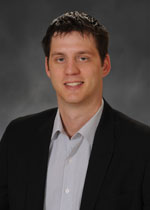
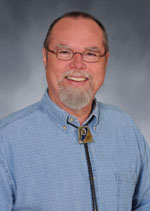
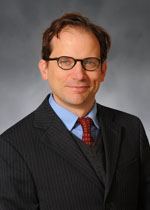
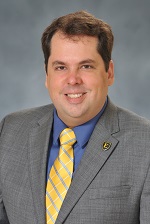
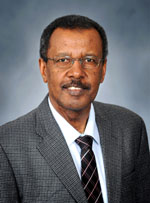
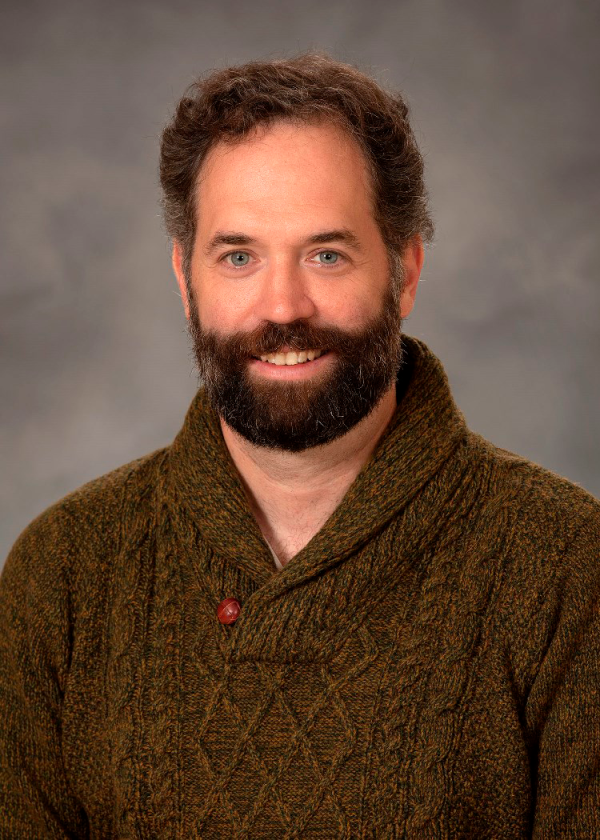
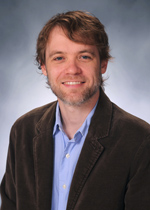
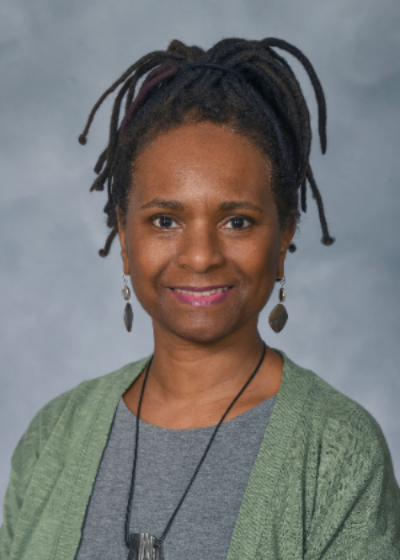
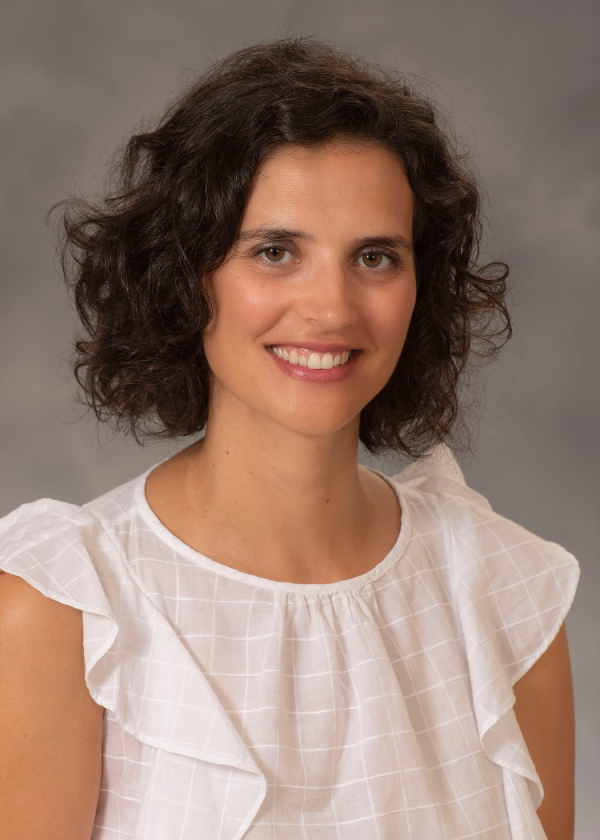
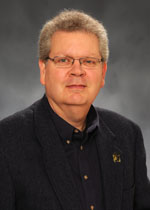
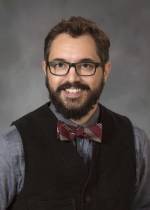
Matthew Holtmeier
Film and Media | Film-Philosophy | Political Cinema | Environmental Media | Cybernetics
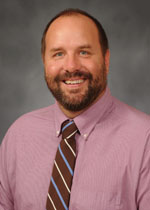
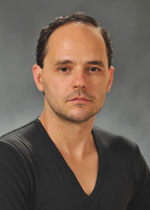
David Michael Jones
Romanticism | 20th Century Popular Culture | Working Class and Masculinity Studies
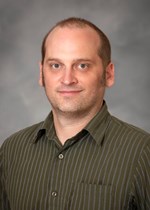
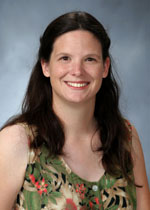
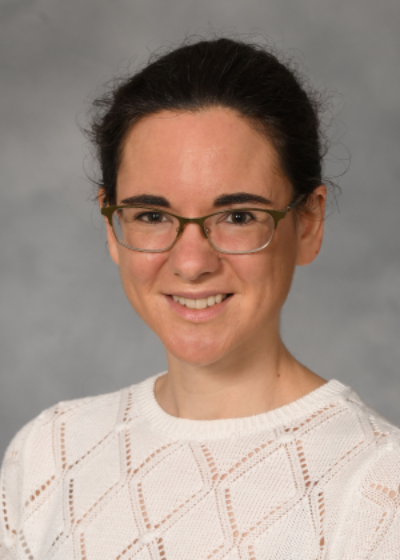
Rachel Mazzara
Ancient Greek and Latin Literature | Drama, Performance, and Spectatorship | World-Building in Narrative Media | Reception of Classical Mythology
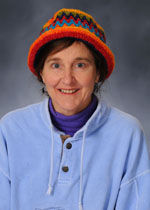
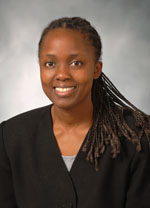
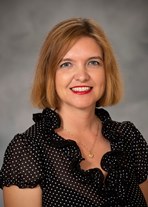
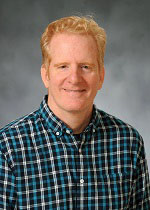
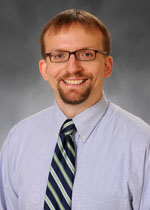
Josh Reid
Early Modern British/European Literature | Bible as Literature | John Milton | Word and Image
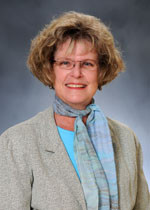
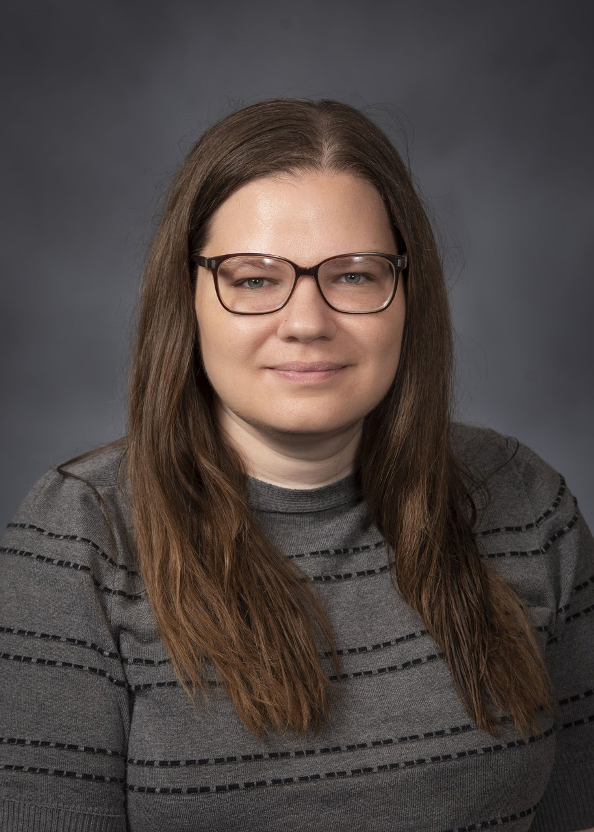
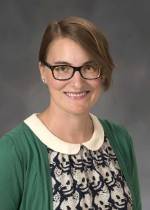
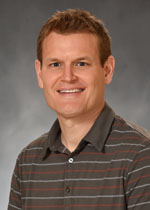
Dan Westover
20th/21st Century British Literature | Welsh Writing in English | Scottish and Northern Irish Poetry
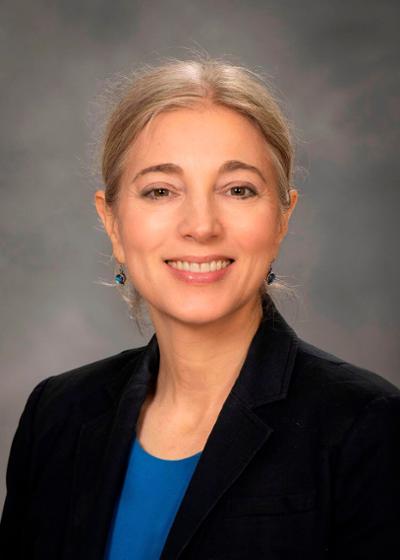
What some of our alums are up to now
-
Danielle Byington - Educator, Arist, and Writer
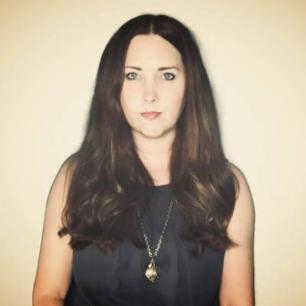
Since completing my English-MA in spring 2017, I generally define myself as an educator, artist, and author. Those three labels are not isolated, however, as all equally influence whatever I’m doing. In early 2020 I started my educational art business, Sight into Insight, which focuses on the relationship of word and image, an interest I was able to develop further during my time in ETSU’s English-MA program. I’ve been fortunate enough in these first few years of the business to have already earned a number of grants for varying projects.
My work as a visual artist after graduating—which has been exhibited nationally, accepted in a permanent collection, and published internationally by academic journals/magazines/textbooks—is a prime example of the fluid ways my English-MA has helped me to succeed, allowing me to articulate complex theories involving the arts such as those I studied in the program. While the venture into the art world was an unexpected accessory to my business, I’d argue it has been as relevant a byproduct of my experiences studying graduate-level literature as my published creative writing, which includes two poetry chapbooks and two children’s books. The liminal space of my visual art and creative writing is especially animated by my work in education, whether teaching writing in a classroom or workshops, creating digital content for libraries to assist students in understanding analytical aspects of literature, or composing a series of paintings to better illustrate a regional figure’s life based on their extant letters.
My collective goal has always been to prevent my work from being strictly an academic conversation trapped within a circle of a dozen people and to instead make it a part of culture from which everyone can benefit. I recently began my doctoral degree in a distance program at University of Jaén, Spain, which supports my objectives, but it’s my time spent in ETSU’s English-MA program that especially prepared me for this mission.
-
Andy Demczuk - Artist and Educator
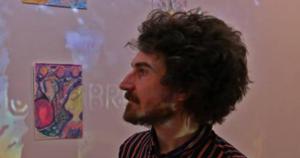
What are you up to now?
I am a first year MFA-Studio Arts graduate assistant in the College of Design, Architecture, Art, and Planning (DAAP) at the University of Cincinnati, Ohio. My research is centered around intuitive drawing, rhetoric, poetics, spatial theory, templates, sound design, and hauntology. I am currently working on a mural design to be painted in a gallery in New York City.
How did your MA in English help you get there?
First of all, the classes were cutting-edge, and taught by some of the best professors I have ever met—leading me to experience eras I might have missed out on: Elizabethan theater, French World War Two literature, modernism, and postmodernism, etc. On top of which, I had the opportunity to learn new critical and philosophical lenses, which are so helpful in achieving a deeper and more profound understanding of art’s effects on society.
In addition to being a student, the GA and teaching experience at ETSU was remarkable. Among the many skills I gained, one of the most memorable was when I conducted research for Dr. Joshua Reid on Dali’s illustrations of Dante’s Inferno. I was also a TA for Dr. Holtmeier’s film class where I got to see the history of film unfold throughout the semester through illuminating discussions and film examples. During my second year, I taught two classes each semester of English 1010 and 1020. I am so grateful for having that opportunity. I now am an adjunct at ETSU where I teach Literary Heritage, one of the best courses out there, though I am biased.
What were some of your favorite classes?
Cybernetic Fictions with Dr. Holtmeier, hands down. For the final project I made a Samuel Beckett-esque audio play where the user advanced the plot via a labyrinthine website.
Do you have any advice for prospective graduate students?
Take the classes that interest you and fuel your creative work. There is no need to separate academic writing from art. Some of my best art projects have come out of critical essays.
-
Zoe Hester - Educator
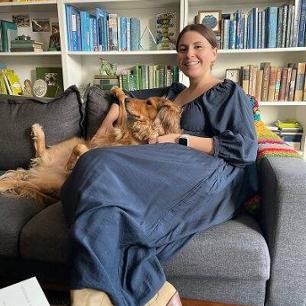
I am currently working as an ML (Multilingual Learner) teacher at a high school in Washington, DC. Before that, I spent two years as an ELL teacher in Knoxville, Tennessee. I'm not sure I'll teacher forever, but it's what I'm doing right now.
My MA in English helped me to gain so many skills outside of literature and linguistics. Becoming a strong student has helped me as I work become a strong teacher.
Some of my favorite classes in the program were Appalachian Literature and 20th-21st Century Dystopian British Literature.
My advice for prospective graduate students is to put yourself out there--you'll be able to grow as a scholar and as a person. -
Abby Lewis - Librarian and Writer
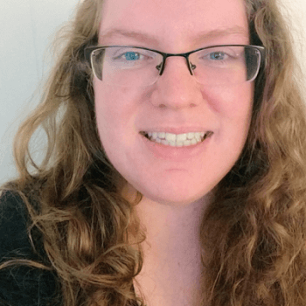
What are you up to now? In your career? In your creative work?
I've transitioned into studying librarianship. I just began my first semester in an MLIS program, and I am striving for a full-time position in the Knoxville Public Library system where I currently work part-time. I still write poetry, and I have a new chapbook coming out this year through plan b press that I'm excited about.
How did your MA in English help you get there?
Many of the skills I acquired and honed through the MA English program I utilize on a daily basis. Having to navigate the Sherrod Library database for sources for essays has taught me valuable transferable skills about navigating databases that I still use in my job and personal life. The critical thinking skills polished in daily critical in-class discussions with my peers is also an invaluable resource that has noticeably improved how I approach discussions with patrons at the library and even people in my personal life. It has allowed me to take a more open-minded and thoughtful approach to engaging in tough discussions.
What were some of your favorite classes?
I always loved the creative writing classes with Dr. Graves, but Dr. Westover's 20th Century British Novel and Dr. Honeycutt's special topics class on creative nonfiction, where we read a lot of graphic novels. Westover's class inspired my thesis, and Honeycutt's class gave me a love for graphic novels.
Do you have any advice for prospective graduate students?
I went back to school for an MA because I'd discovered that working in publishing was not for me, and I wanted to make time to explore other interests. Sometimes it's just as helpful to know what you don't want to do as it is to know what you do want to do. Essentially, make time to allow yourself to experiment and discover what you enjoy and what you don't. Eventually, you'll find a track you love. My roundabout way of discovering librarianship taught me a lot of valuable information about myself and my own interests.
-
Luke Shelton - Educator, Editor, and Podcaster
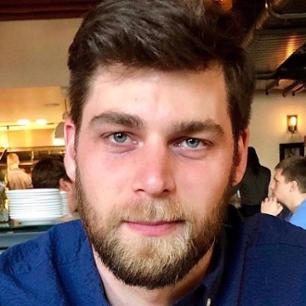
What are you up to now? In your career? In your creative work?
Currently, my "day job" is as a tutor at a local learning center in Rochester, Minnesota. I find the work fulfilling and engaging there, but it is only a part of what I am working on. I am also able to pursue my passion for the works of J.R.R. Tolkien by serving as the Editor-in-Chief of Mallorn: The Journal of the Tolkien Society. It is a great way to keep up with new scholarship and to give back to a field that I am very grateful to be a part of. (I was fortunate enough to lead a recent scheme to make the journal Open Access, and so I can now use my position as an editor to give back to an even broader community.) I also created and co-host The Tolkien Experience, which has both a podcast and a text-based project where people share their personal history and experiences with Tolkien's work and its adaptations.
How did your MA in English help you get there?I was never the best student in high-school or college. When I decided to come back for my MA, I found that I had a new zest for learning and discussing new ideas. I think that ETSU was a very beneficial place for me because all of the professors were welcoming and encouraging in a way that I do not think I would have experienced at a larger institution. I was able to spend a lot of time talking to professors in very small classes or one-on-one. This fueled my love of learning and my desire to pursue my passions after my MA. In short, I think my MA reignited something that I had lost: my passion for engaging with others in the exchange of ideas. This is what drives me to do everything I do now. I teach, edit journals, and host podcasts because all of these are ways of reaching out to others over a shared passion. I really do think that my time at ETSU had a lot to do with my confidence to do these things.
What were some of your favorite classes during your MA?I really enjoyed my Russian Literature course! It was a stretch because I had never studied it academically before, even though I had read and enjoyed Dostoevsky and Gogol on my own several years earlier. I also really enjoyed my Medieval Literature and Old English courses. Obviously, this was already my area of interest, but I was delighted that we were able to get enough students interested in Old English so that we could run a full course!
Do you have any advice for prospective graduate students?You will have a mentor during your time at ETSU, make sure to actually use them as a resource and to reach out to your other professors, too! Some of my best memories and my best learning happened during the office hours of my professors, when I could ask them my questions directly or even disagree with the text we were studying. Also, ETSU is a smaller school, so take advantage of the opportunities this gives you as a student! You can get to know everyone in your cohort, you can request special classes, you can petition for changes and know that the department will actually hear you. All of these things are much more difficult when you are in a larger institution.
-
Daniel Stoll - PhD Candidate
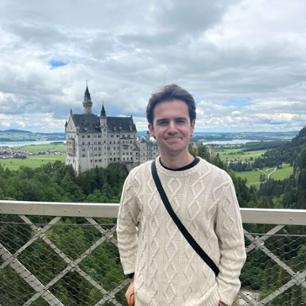
What are you up to now in your career and/or creative work?
I am a first year Ph.D. candidate in English (Literary Studies) at the University of Wisconsin-Madison as a medievalist studying Old English language and literature. My research interests also include Old Norse language and literature, the epic, extinction studies, mythology, and the history of oral storytelling.
How did your English MA help you get there?
Completing the M.A. in English at ETSU helped me to acquire research methods and teaching experience that would have been extremely difficult to gain during or right out of earning my Bachelor's degree. In addition, because I already have experience being in graduate seminars, teaching courses, and writing a graduate thesis, I feel confident currently in my courses at the University of Wisconsin-Madison, and I am sure that the experience I acquired at ETSU will also help in the courses that I will teach in the future and while writing during the dissertation process.
What were some of your favorite classes during your MA?
Given my intended specialty as a medievalist, all courses that I completed by Dr. Thomas Crofts and Dr. Joshua Reid continue to be invaluable to my research. But if I had to pick two courses from each of them, I would choose Dr. Crofts's graduate level Medieval literature course and survey course in Arthurian literature, and for Dr. Reid, his Milton course and his graduate level Renaissance literature course. I also really enjoyed Dr. Crofts's courses in Ancient Greek, Dr. Matthew Fehskens's graduate course in continental modernism, and Dr. Michael Cody's Native American literature course
Do you have any advice for prospective graduate students?
Definitely apply for the M.A. in English at ETSU. The program offers a fantastic Master's degree for many reasons, but the main one is the strength of the faculty. By strength, I do not only mean the caliber of the professor's research; they all do great, cutting-edge work. I also mean that the professors in the department care deeply about their teaching. Courses in the department are taught well by professors who care deeply about how students feel and respond to literature and what ideas they can bring to research conversations. Overall, the program teaches you how to think, read, and write effectively, and the professors in the department genuinely care about you both as a student and as a person.
-
Emily Wilson - Managing Editor for the Journal of Appalachian Health
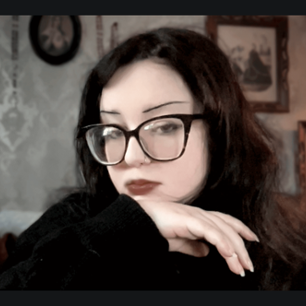
What are you doing now in your career and/or creative work?
I was recently hired on as the managing editor for the Journal of Appalachian Health, an open-access public health journal focused on the wellbeing of Appalachian people. Creatively, I’ve begun focusing more on fiction and longform narratives after a bit of guidance from Dr. Graves. I’m hoping to have my first novel published within the next five years.
How did your English MA help you get there?
I definitely have my experience with editing The Mockingbird to thank for my current career.
What were some of your favorite classes during your MA?
I loved being part of Dr. Graves' creative writing workshops, especially the graduate level one. In terms of literary studies, I would say my favorites were Dr. Lichtenwalner's Romantic literature course, Dr. Sawyer's Victorian literature course, and Dr. Holmes' Literature of Southern Appalachia course were my favorites.
Do you have any advice for prospective graduate students?
Know your limits and don't try to stretch yourself thin. Invest in a good planner. Ask for help and pool your resources. Make time for your friends. Eat at least one vegetable a day.
-
Tanner Linkous - Educator
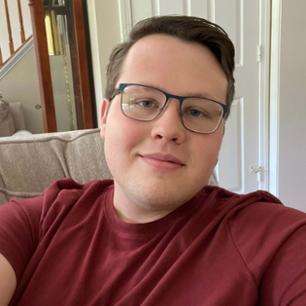
What are you doing now in your career and/or creative work?
Currently, I am an adjunct professor at New River Community College. The campus itself is located in Dublin, Virginia, but I work at the mall site located in Christiansburg, Virginia. Right now, I am really focused on improving as a teacher. Most of what I read now, if it’s not for fun, is pedagogy. I knew that I wanted to teach, but I don’t think I knew how much I loved teaching until I got into it. That’s what I’m mainly focused on right now, but as far as career goals, I’m hoping to go full time at New River within the next few years with the plan of eventually getting a doctorate while I work at a college.
How did your English MA help you get there?
Everything I teach my students are things that I picked up at ETSU. Going into ETSU, I thought that philosophy and English were two very closely intertwined subjects, and in many ways they are, but my understanding of English was pretty standard. I definitely wasn’t where I needed to be to teach at a higher education level. So I think I owe virtually everything that I’m able to do in the classroom to my time at ETSU and to the classes I took, as well as the tutelage and mentoring from the professors there. The classes I took at ETSU along with outside of class help from the professors gave me the content knowledge I needed to feel confident in the classroom. They went out of their way to give me further instruction and sort of guide me through the steps of becoming a successful student, and, eventually, by the end of the program, a successful educator. An English degree from ETSU has made me competitive in the job market because of the skills that they give you.
What were some of your favorite classes during your MA?
Top 3 – Golden Age British Detective Fiction with Dr. Slagle, Feminist Film Analysis with Dr. Wessels is a close second, and Early Modern Literature with Dr. Reid at number three.I really liked Dr. Jones’ energy, and the energy that he has when he approached what are really kind of dry topics, such as literary criticism. Dr. Jones always managed to make that pop. I also loved Dr. Cody’s 19th Century American Poetry class.
Do you have any advice for prospective graduate students?
Get in contact with Dr. Holtmeier or whoever is over the graduate program and ask them any questions you have that aren’t listed on the graduate page. A graduate program is very involved. It’s not anywhere near undergraduate. It’s very intense. One thing to consider would be “Is this something I really want to do?” If it’s a resounding yes, then the first thing you should do is go to the website and see what information is on there and see if it’s a good fit for you. Then, email Dr. Holtmeier any questions you may have. It’s expensive, and it’s time consuming, so you want to make sure that you’re making the right choice.
 Steam/Natural Gas Service Dis...
Steam/Natural Gas Service Dis...  Stout Drive Road Closure
Stout Drive Road Closure